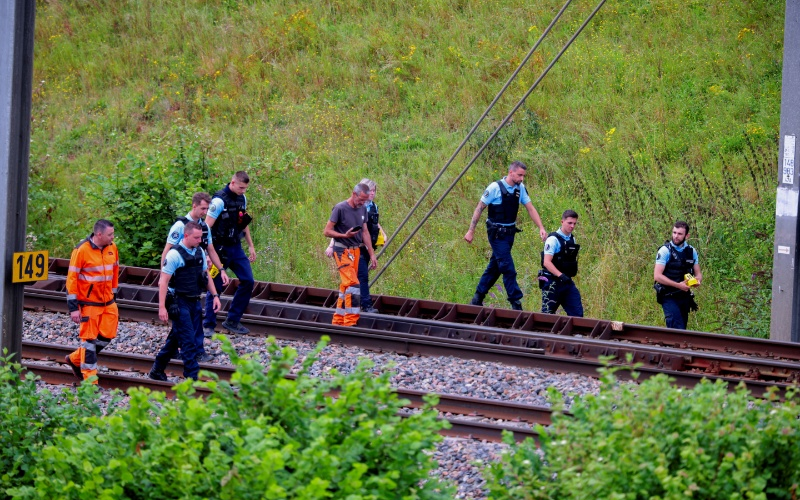France is grappling with the aftermath of a major security lapse that saw its high-speed train lines sabotaged just weeks before the opening of the Paris Olympics. Despite the gravity of the situation, the French government seems more focused on deflecting blame than on addressing the apparent vulnerabilities in its infrastructure and the looming threat to public safety.
The coordinated arson attacks, which disrupted rail travel for hundreds of thousands of people, have cast a dark shadow over the nation’s ability to safeguard its critical infrastructure ahead of one of the world’s most watched events. More than a week after the sabotage, authorities remain frustratingly vague about who is responsible, with no arrests made and no suspects publicly identified.
Instead of providing concrete answers or demonstrating a robust response, officials have chosen to float the familiar specter of the “ultraleft,” a label often slapped onto anti-capitalist and insurrectionary anarchist groups. France’s Interior Minister Gérald Darmanin was quick to point out that railway sabotage is a “traditional method of action” for such groups, and the country’s domestic intelligence agency echoed this sentiment, noting that arson has long been a favored tactic of the so-called ultraleft.
But this explanation raises more questions than it answers. For one, the term “ultraleft” is a catchall label that oversimplifies a complex and diverse range of movements, lumping together any fringe left-wing activity that involves illegal practices, whether violent or nonviolent. Experts caution against using this broad brush, which only serves to obscure the real issues at hand.
Moreover, the government’s focus on the ultraleft seems like a convenient way to avoid scrutiny of its own failures. The fact that such a significant act of sabotage could be carried out with such apparent ease, targeting France’s centralized and vulnerable rail system, is a damning indictment of the nation’s preparedness—or lack thereof—as it prepares to host the world in Paris.
While the investigation remains open, the government’s apparent disinterest in fully addressing the crisis is deeply troubling. France is currently basking in the glow of its Olympic medal count, a distraction that likely suits the authorities. The reality, however, is that this incident highlights glaring weaknesses in the country’s infrastructure security—a vulnerability that should alarm both French citizens and the international community.
The lack of urgency in the official response is particularly concerning given the broader context of rising infrastructure sabotage across Europe. In recent years, activists, including climate militants frustrated with the ineffectiveness of traditional protests, have increasingly turned to sabotage as a means of forcing change. These acts are often meticulously planned and carried out by loosely organized groups that operate in the shadows, leaving authorities struggling to respond effectively.
In France, telecommunications infrastructure is frequently targeted, with about a dozen small-scale acts of vandalism or sabotage occurring every month. This ongoing pattern of attacks should have served as a wake-up call for the French government to bolster security measures, especially with the Olympics on the horizon. Instead, the response has been reactive and half-hearted at best.
The email sent to media organizations celebrating the rail sabotage—allegedly from the perpetrators—further underscores the government’s failure to take this threat seriously. The email, which criticized the Olympics as a “celebration of nationalism” and condemned various facets of French state and corporate power, may or may not be genuine, but it reflects a sentiment that the government has failed to address. Rather than confronting the root causes of such extremism, officials seem content to dismiss it with vague accusations and platitudes.
As France prepares to welcome the world to Paris for the Olympics, it must do more than just put on a good show. The government needs to acknowledge and address the very real security threats that exist within its borders, instead of hiding behind convenient scapegoats. Failure to do so not only puts the success of the Games at risk but also endangers the safety of everyone in the country.








